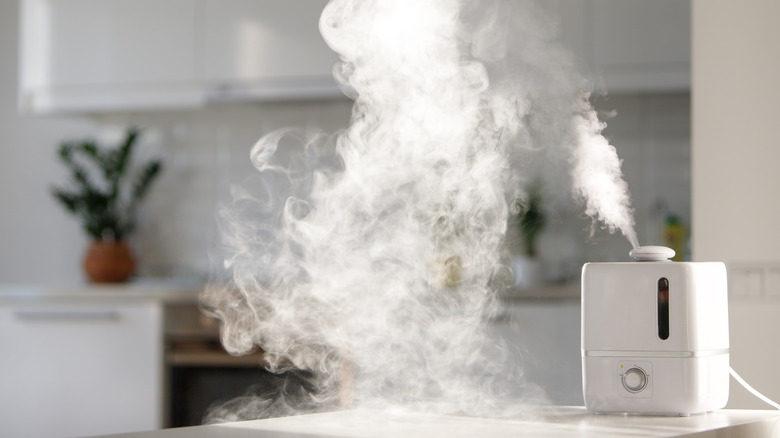You Might Have A Sinus Headache If This Happens To You
Your sinuses are a group of air-filled sacs around your nasal cavity that swell with mucus when they become inflamed. This swelling can cause pain and pressure in your sinuses, which often feels like a headache. Sinus headaches are caused by the resulting pressure in the sinus passages around your eyes, cheeks, and forehead, and are most often a symptom of a sinus infection, or sinusitis (via WebMD).
Sinus pain is deep and constant and may get worse when you bend over, turn your head suddenly, or lay down. Other symptoms of a sinus headache include a sore throat, cough, fever, fatigue, facial swelling, a feeling of fullness in your ears, and nasal discharge (via Verywell Health). If your sinus headache is caused by a bacterial infection, you may also have tooth pain.
Sinus headaches are often misdiagnosed as migraines, so it's important to note the differences between the two ailments. In addition to sinus-type symptoms, migraines will also cause nausea, vomiting, and sensitivity to light and sound. If you are experiencing any of these symptoms, it is likely that you have a migraine and not a sinus headache.
How to treat a sinus headache
While sinus headaches typically resolve on their own, there are a few home remedies you can try to help relieve your symptoms and ease your pain. Since sinus headaches are caused by a buildup of mucus trapped in your sinuses, you can help promote sinus drainage by using a humidifier or breathing in steam from a hot shower (via Healthline). You can also try irrigating your sinuses with saline solution or pressing on the sinus pressure points between and above your eyes to help dislodge any trapped mucus.
Over-the-counter medications can also help alleviate your symptoms. Pain relievers, like ibuprofen and acetaminophen, can help ease any pain you may be experiencing, while decongestants, like pseudoephedrine, can help relieve congestion. If your sinus headache is a result of a bacterial sinus infection, however, your doctor may prescribe mucolytics, antihistamines, or even antibiotics.
If you have a history of allergies and are suffering from severe or chronic sinusitis, your doctor may also recommend corticosteroid injections.


